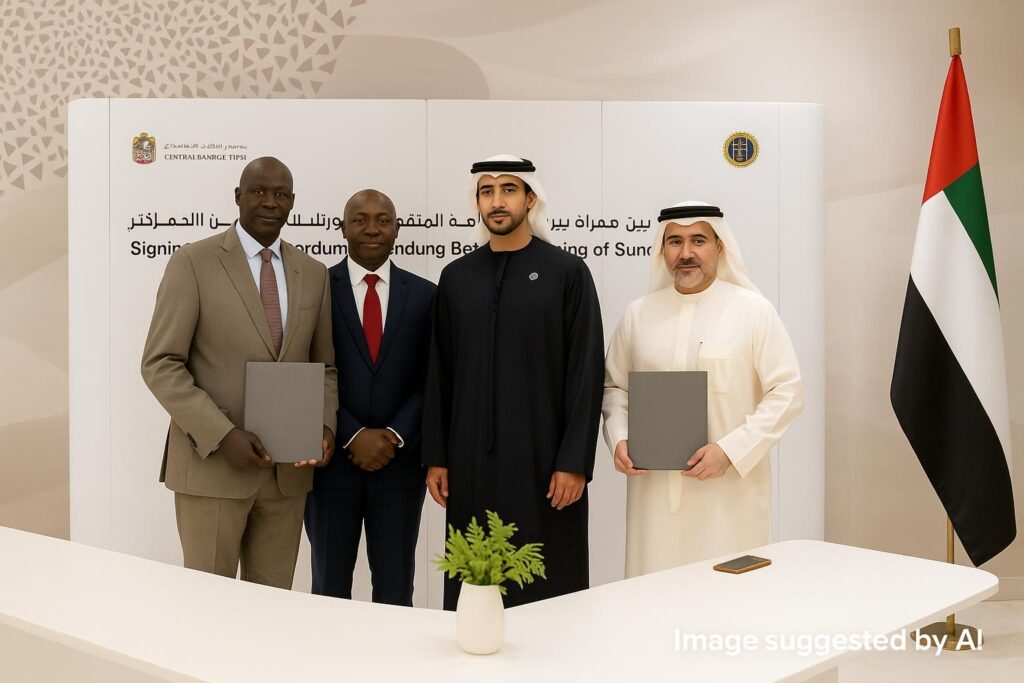South Sudan-UAE financial cooperation strengthens
In Abu Dhabi, the Bank of South Sudan and the Central Bank of the United Arab Emirates sealed a Memorandum of Understanding, framing collaboration in secure currency printing, national payment cards and professional training.
The signing, witnessed by UAE Minister of State Sheikh Shakhbout bin Nahyan Al Nahyan and Vice-President Benjamin Bol Mel, signals a growing economic partnership that both capitals describe as strategic and mutually reinforcing.
Secure currency printing via Omlat
Through Omlat, a UAE Central Bank subsidiary, Juba intends to modernise banknote production using state-of-the-art security features that deter counterfeiting and align the South Sudanese pound with international quality benchmarks.
Governor Addis Ababa Otto praised the move as “a milestone that will underpin confidence in our national currency and support macroeconomic stability”.
Building a national payment card network
Al Etihad Payments will execute a two-phase programme. Phase one introduces switching technology to route domestic card transactions securely and swiftly; phase two localises processing infrastructure, reducing reliance on foreign platforms and lowering fees for merchants and consumers.
Analysts note that card penetration in South Sudan is presently under 5 percent, so the planned system could accelerate formal retail activity and facilitate regional trade corridors.
Skills transfer and regional resonance
The Emirates Institute of Finance will host South Sudanese supervisors for immersive courses in prudential regulation, monetary operations, and cyber-risk management, addressing a skills gap long cited by Pan-African banking observers.
Central Bank of the UAE Governor Khalid Mohammed Balama said the partnership “shows our commitment to knowledge sharing that shields the wider financial system from illicit flows.”
Economists argue the deal could pave the way for greater Gulf investment across the Nile Basin, while reinforcing Abu Dhabi’s role as a nexus for African fintech growth.
A pragmatic blueprint for inclusive growth
By pairing secure cash with digital rails, policymakers aim to broaden access to payments, enhance fiscal transparency and attract diaspora remittances—key levers for post-conflict reconstruction.
If implementation stays on schedule, Juba may join the ranks of African economies leveraging technology to leapfrog legacy barriers, without compromising monetary sovereignty.


